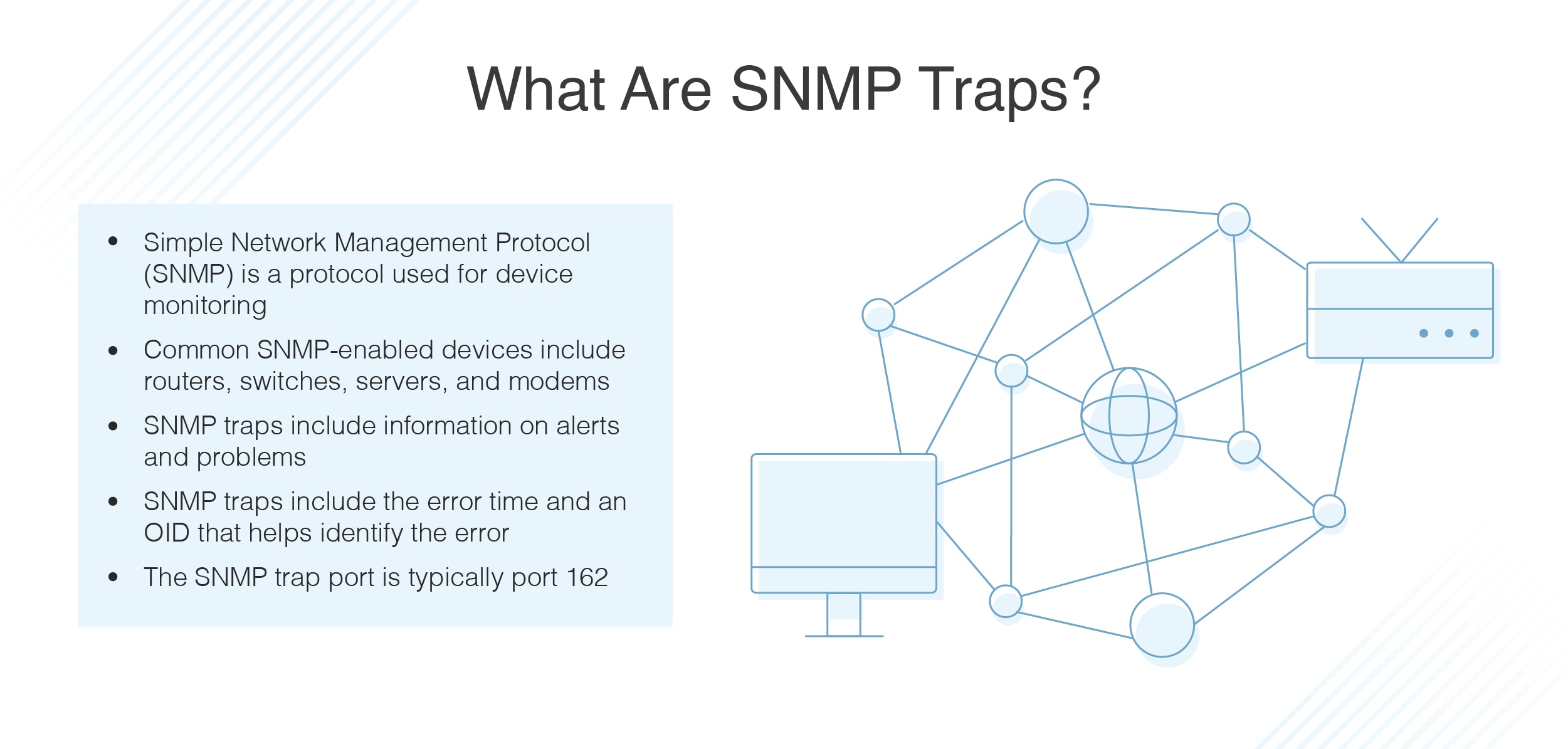
This will logĪn event of the type trap for received traps. You can configure generic event logging for snmp traps. So what value should you type in the commands below? Oddly enough, simply supplying no value by using two single quotes '' will instruct the command to obtain the value from the operating system you are executing this on. Sometimes this is the operating system, other devices might use the SNMP engine uptime. Uptime is how long the system has been running since boot. When you send a trap, it must of course conform to a set of standards. If you want to test or store original TRAPS in log then:Ĭreate a folder for storing traps for example in file traps.log Multiple files can be added, separated with. Better is to specify theĮxact MIB files defining the traps you are interested in, for example for LinkDown and LinkUpĪs well as BGP traps, use -m IF-MIB:BGP4-MIB. Will typically fail (snmptrapd cannot load that many mibs). Good practice is to avoid -m ALL because then it will try to load all the MIBs in DIRLIST, which

(For example: /opt/librenms/mibs:/opt/librenms/mibs/cisco:/opt/librenms/mibs/edgecos) Option is not recursive, so you need to specify each DIR individually, separated by. (usually fails)ĭIRLIST: use DIRLIST as the list of locations to look for MIBs. MIBLIST: use MIBLIST ( FILE1-MIB:FILE2-MIB). Use numeric addresses instead of attempting hostname lookups (no DNS) Here is a list of snmptrapd options: Option

In Ubuntu 18 is service located by default in /etc/systemd/system//rvice Description=Simple Network Management Protocol (SNMP) Trap Daemon.ĬonditionPathExists=/etc/snmp/nfĮxecStart=/usr/sbin/snmptrapd -f -m IF-MIB -M /opt/librenms/mibs


 0 kommentar(er)
0 kommentar(er)
